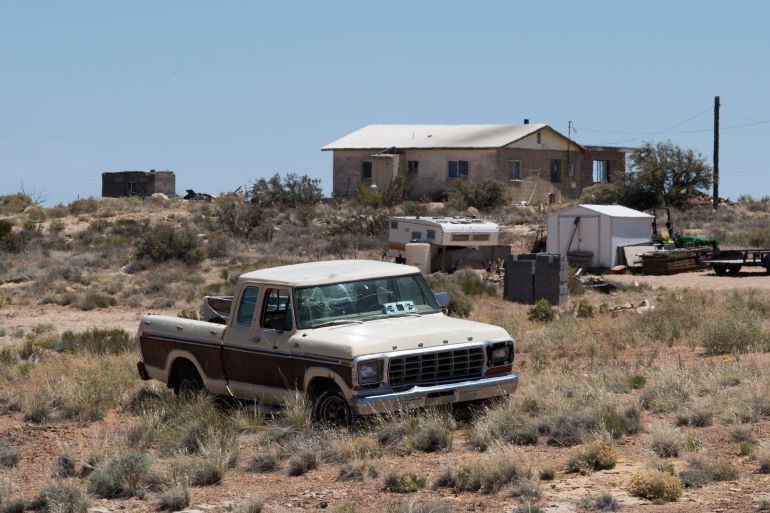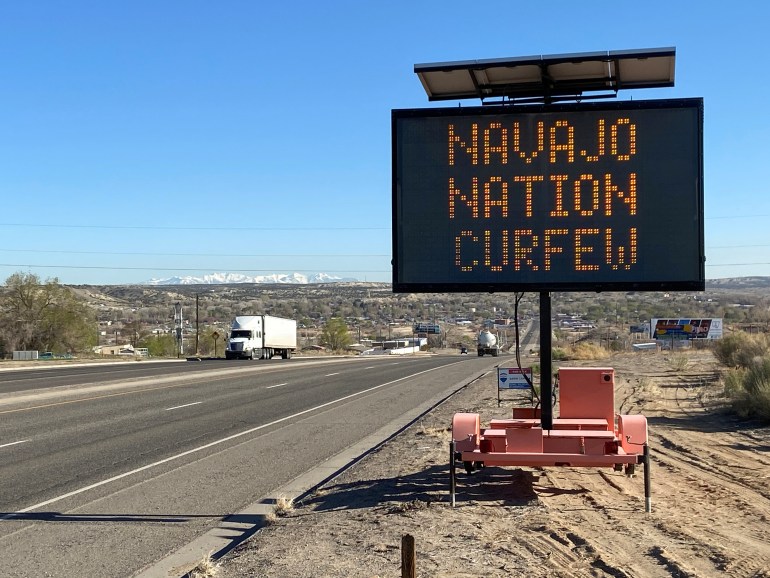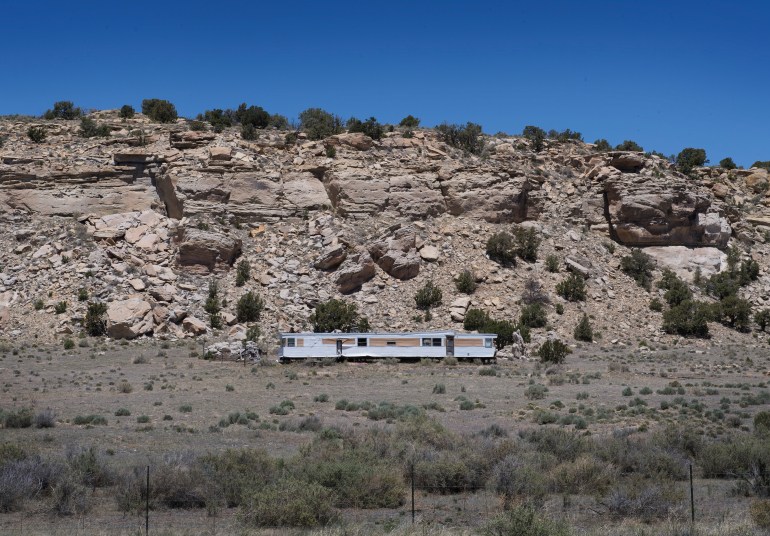Native Americans fear votes in remote areas could go uncounted
Ahead of US elections, Native Americans say they face numerous obstacles to registering and casting their ballots.

Colleen Benally, who lives on the Navajo Nation reservation in the southwest United States, spends a lot of time in her car. Her daily commute takes three hours, and it is a 45km (28-mile) drive to collect mail from the nearest post office.
“It’s just normal for us that we don’t live close,” said Benally, who has been volunteering to help register Navajo residents to vote in next month’s presidential election.
Keep reading
list of 4 itemsPhotos: Indigenous people in Brazil march to demand land recognition
Holding Up the Sky: Saving the Indigenous Yanomami tribe in Brazil’s Amazon
Indigenous people in Philippines’s north ‘ready to fight’ as tensions rise
But while tribal members are used to the vast distances of desert life, the election has highlighted fears that the geographical isolation of many Native Americans could deprive them of having their votes counted.
A pivotal case in a US federal court revolved around their bid to have a deadline extended for the submission of mail-in ballots – a deadline that activists said put Navajo voters at a disadvantage and amounted to voter suppression.
The Navajo case in Arizona, which was dismissed on appeal this week, was one of several fought around the country over tribal voting rights.
In Montana, the Sioux, Crow, Blackfeet and other tribes won a victory in September with a court ruling on who is allowed to collect another person’s ballot.
They argued successfully that members of remote rural tribes should be able to accept the help of voting groups to collect and deliver their ballots to election offices.
‘Voter suppression’
“Just like in the Black community and in the Latino community as well, there are concerted, focused, targeted efforts to suppress our vote,” said Marci McLean, executive director of Western Native Voice, a non-profit in Montana.
“The resistance to provide equitable voting services in our communities – that is voter suppression, that is voter intimidation,” she told the Thomson Reuters Foundation.
A recent report by the Native American Rights Fund, a legal advocacy group, found Native Americans – who number about 6.8 million people – face obstacles registering, casting ballots and having their votes counted.
It cited a host of factors such as poor or impassable roads, technological limitations, a digital divide, lack of traditional addresses, distrust of government and language barriers.
“Difficulties in voting – the very foundation of democracy – are not new for Native Americans. It is part of the legacy of genocide and racism the continent’s first peoples have fought for more than 500 years,” the report said.

In Arizona, advocates wanted mail-in ballots that could be postmarked up to and including the November 3 election day. Under the current law, ballots must arrive by 7pm (23:00 GMT) on election day.
Conditions on the reservation mean Navajo votes will not get counted because residents do not have easy, affordable access to pick up ballots from the post office, fill them out and mail them back in, said OJ Semans, co-executive director of Four Directions, a voting rights group in the Arizona case.
“If you live in Scottsdale, Arizona, you can open your door and get your mail or go to the end of your driveway and get your mail,” said Semans, referring to an affluent Phoenix suburb.
“If you are a member of the Navajo Nation and you live in a rural area … you’ve got to drive on average 38 miles (61km) to the post office on primitive roads,” he said. “Usually you check your mail once a week because you can’t afford it.”
The Navajo Nation, the country’s largest reservation, stretches 67,000 square kilometres (26,000 square miles) across Arizona, Utah and New Mexico.
‘Not important enough’
Benally said her neighbours and relatives who live in the reservation’s mountains and on its desert plateaux often do not have transportation or money for gas to pick up their ballots and vote.
More than 40 percent of Navajo Nation residents live in poverty, according to its division of economic development, twice the rate of poverty in the country’s poorest state of Mississippi.
“It seems like they look at us as though we’re not important enough to help,” Benally said.
In the Navajo ballot case, a federal court denied last month their request for a voting deadline extension, and the case was thrown out this week by the federal appeals court.
Difficulties in voting - the very foundation of democracy - are not new for Native Americans. It is part of the legacy of genocide and racism the continent's first peoples have fought for more than 500 years
“Many of the issues Navajo voters face in accessing the postal service are not a result of the Receipt Deadline and will not be remedied no matter when the deadline to receive ballots is,” the US District Court in Arizona said in a September 25 ruling.
In a statement released to several news outlets, Arizona Secretary of State Katie Hobbs acknowledged “the unique circumstances addressed by the plaintiffs”.
“But what they are asking for would be difficult to implement this close to an election. Based on the disparities some communities face in this state, we are ensuring that they are aware of the options they have for voting in this election,” her statement added.

The ruling comes as COVID-19 – which has taken a heavy toll on Native American communities – makes many tribal members reluctant about voting in person on November 3, said McLean, a member of the Blackfeet Nation.
At the same time, a drive to encourage voting online is unlikely to make significant in-roads among Native Americans, many of whom do not have broadband access.
“It’s a push that’s leaving folks behind,” she said.
